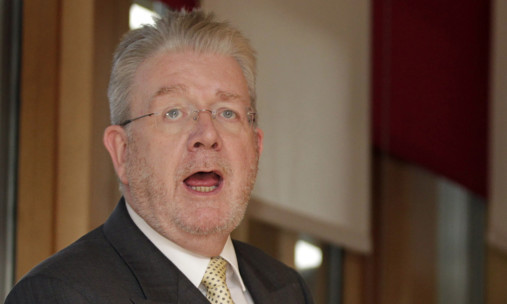The publication of Scottish Higher results is greeted each year with much back slapping by ministers, and yesterday was no exception. “Record” pass rates have become a regular feature of the exam system and so have politicians congratulating themselves on a job well done.
This year, there is even more pressure on the SNP’s education department to come up with a good news story, and the platitudes will probably have been written well in advance of the SQA’s verdict. However, without wishing to detract from the achievements of those who have been successful (pupils and teachers), the real picture from Scotland’s schools is far from cheery.
In 2013, just 24 out of Scotland’s 368 secondaries saw at least half their pupils pass three or more Highers. That means more than 93% of schools failed to meet the most basic exams target.
In 19 out of Scotland’s 32 local authorities, no schools achieved this modest goal, the bare minimum for entry to further education. And it is children from poorer backgrounds who are least likely to make the grade for university.
A comparison of A grades exposed an ever starker divide between rich and poor families. In some areas, the gap is so wide that poorer children are 20 times less likely to achieve three As at Higher grade, a Freedom of Information request to the Scottish Government revealed in April.
In Dundee, just 1.8% of pupils in the lowest 20% achieved three or more As at Higher grade in 2013 compared with 18.2% in the highest (socio-economic) group.
The typical response from the education establishment to its own failings is to blame poverty. Alan McKenzie, acting general secretary of the Scottish Secondary Teachers’ Association, said the exams inequality was a consequence of “inescapable” factors. In other words, if you are unlucky enough to be born disadvantaged you can expect to stay disadvantaged for the rest of your life.
This fatalistic attitude is convenient because it absolves educationalists of the need to do anything. But it is lazy and, of course, quite wrong.
Deprivation does not have to condemn kids to a substandard education, as schools south of the border have proved. If Mossbourne Academy in inner city London can go from worst school in Britain to beacon of hope, with Oxbridge places for its school leavers, then accident of birth cannot be an excuse for failure.
Mossbourne managed to turn around its fortunes (and those of its pupils) thanks to an inspirational head teacher who was allowed to run his institution “like a grammar school within a comprehensive intake”, as he put it.
The school was one of the first to opt out of council control, permitted under education reforms in England, and impose a can-do culture on its community, most of whom are on free school meals. Academies are encouraged to be innovative, in teaching and curriculum and discipline.
This could not happen in Scotland, where innovation is a dirty word. Successive Holyrood administrations have shied away from any significant overhaul of education, too afraid to take on such a daunting project.
Look what happened to Michael Gove, Westminster’s fearless schools reformer until he was unceremoniously moved in the last Cabinet reshuffle, supposedly for making himself unpopular. Mike Russell, a much more hands-off kind of operator, must have allowed himself a smug smile at that.
Scottish education ministers avoid courting controversy. They refuse to publish school league tables, thus hiding unwelcome statistics and they would rather make the exams easier than the standards tougher. The Curriculum for Excellence, with its focus on soft life skills, is a case in point.
The nationalists can hardly say things will improve with independence because education was devolved even before devolution. They have been in government for seven years so the opportunity to make radical changes has been there, if they had wanted to grab it.
Russell, whose ministerial responsibilities have taken him to Canada, New Zealand and China, agrees with the teachers’ union that the attainment gap in schools can only be closed if poverty is eliminated. It’s a neat way of sidestepping the problem but it won’t offer comfort to our children.
